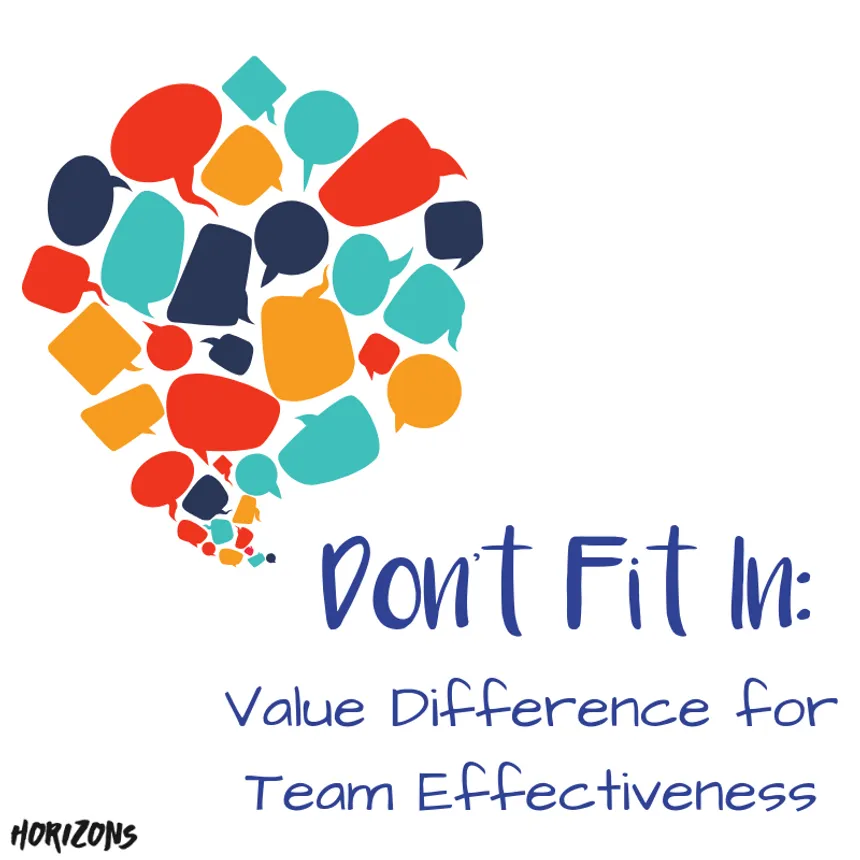Don’t Fit In Value Difference for Team Effectiveness

Originally published by Leigh Kendall – 29th October 2019
Recently I took a survey on my personal resilience. I live with post-traumatic stress disorder (PTSD), and consider myself to be pretty self-aware. So while I wasn’t surprised that it highlighted things I’m not so good at, and suggested areas for me to work on, I was surprised by the survey’s focus on my negative attributes and absence of things that I am good at.
The survey’s results sent me down a rabbit hole for a while (“Am I really that irritable?” “What does it mean, I’m not resourceful?!”). It really niggled me and made me feel down about myself (and as a result probably very irritable!).
Understanding how, where, and why we need to work on things about ourselves is important for us all, of course. I know I can get irritable when I don’t have an outlet for my stress, and when I get tired (and anger is a key symptom of PTSD) – so the survey results reinforced for me just how crucial my self-care activities such as exercise, fresh air, and adequate rest are for my personal wellbeing (and that of others!). One action that helped be get out of the funk was making the time to go out for a run in the glorious autumn sunshine – and I felt so much better as a result.
Most of us want to be accepted socially, and throughout our lives we’ve learnt that being different hinders our capacity to ‘fit in’. However, it’s the diverse perspectives and experiences we all have and the thought diversity that brings – a whole host of views, experiences, and viewpoints – that is of most benefit to a successful team, or any community.
Part of wanting to ‘fit in’ can mean wanting to appear perfect, or infallible. None of us are perfect, and we are all fallible of course; the trouble is, we can spend a lot of time focusing (or fixating) on the negative – what we are not good at, what we can’t do, rather than giving ourselves credit for what we are good at, or a pat on the back for what we can do.
Such negativity diminishes our self-confidence. Self-confidence can be challenging to repair by ourselves: this is where a community can be of huge benefit as my colleague Kathryn considers in this post.
Another action that helped me to get out of the funk was the ability to talk openly with my team about the results the resilience survey gave me, and how they made me feel. My colleagues were able to reassure me that no, I am not a horrible irritable person (phew!). They reinforced all of the things that I am good at, and the value that my perspectives, experience and expertise brings to the team.
In my team, we make extensive efforts to recognise and value the contribution that everyone makes. We try our best to take the time to acknowledge the positive contribution that an individual has made to a task or a project. We make a point of respecting the diverse perspectives that we bring from our wealth of individual experiences and expertise.
This is something that we can all do – within our teams, and our wider communities. Making the effort to value difference. Taking the time to acknowledge the value that others’ experiences offers. Giving the gift of helping someone appreciate their strengths. It’s a way to achieve our potential – individually, and collectively.
Finding ways to let team members know about how their behavior positively affected others in the past can offset concerns about social acceptance that come with exposing one’s unique perspectives and identity to others. Making people aware of their own strengths results in better communication among team members and thus higher levels of performance.
